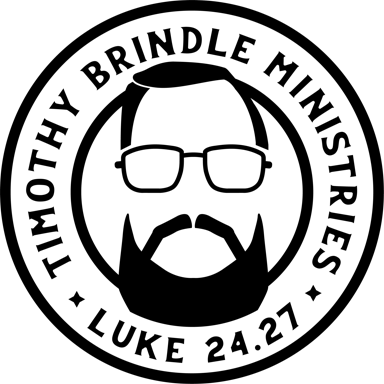Standing in the Gap to Intercede: A Biblical Theology of Mediator (Ps. 106)

In God’s unfolding story of redemption, there are several figures who intercede on behalf of sinners as a sort of “mediator” between a holy God and His sinful people. Psalm 106 presents us with two of them: Moses and Phinehas. This psalm is about God’s patient, faithful, forgiving love, despite His people’s persistent wickedness. Moses and Phinehas both stand before God, who is rightly angry at the sin of His people, and their intercession causes God’s holy wrath to turn away from destroying them.
1. Moses
The first mediator presented in Psalm 106 is Moses (v. 23). In the preceding verses, the golden calf incident is retold (v. 19-22). Israel’s wicked works are contrasted with God’s works of salvation: Israel made (עשׂה) a calf at Mount Horeb (v. 19), though God had already did (עשׂה) great things in Egypt to deliver them (v. 21). Although God had revealed His glory to them through His miraculous acts, they exchanged the glory of God for the image of an ox (v. 20, consider Paul’s use of this verse in Rom. 1:23). Although Israel forgot God their Savior (v. 21), God would remember His covenant (v. 45) and provide a mediator to intercede for them.
God’s initial response to their idolatry is that “He said He would destroy them, except [לוּלֵ֡י] Moses His chosen one stood (עָמַ֣ד) in the gap before Him (לְפָנָ֑יו)” (v. 23). It is not the case that Moses suddenly invented new plan to save Israel from God’s wrath, which God Himself was not previously aware of. Rather, Moses is God’s chosen one – whom God chose as a mediatory figure – who literally “stood in the gap before His face.” The sin of God’s people creates a gap (פֶּרֶץ, perez) or a breach that separates us from His holy presence. The goal of the mediator is to stand between the separated parties, and provide reconciliation.
The two Hebrew words in the phrase “to stand before Him” are also used in Genesis 18:22 for Abraham when “he kept standing before (עֹמֵ֖ד לִפְנֵ֥י) the LORD” to intercede on behalf of Lot in Sodom and Gomorrah. As a mediator figure, Abraham seems to lay the pattern for future intercessors. In both accounts, it is as if the LORD threatens judgment against His sinful people in order to arouse His chosen servants to compassion and mercy, and then allow them to enter in to the divine council and offer up prayers of intercession before their Compassionate and Gracious God. By doing so, these Old Testament mediators preview what God Himself would do in the fullness of time.
Psalm 106:23 says the purpose of Moses’ intercession was “in order to turn away His wrath from destroying them,” which was partially successful: “And the LORD relented from the disaster that he had spoken of bringing on his people” (Ex. 32:14, ESV). In Moses’ desire to make atonement for their sin, he was even willing to be blotted out so that they could be forgiven. But as a fellow sinner, God would not accept Moses to die in their place as their substitute, so He still brought a plague upon Israel (Ex. 32:30-35).
Thus far we have seen that a mediator stands in the gap between a holy God and His sinful people, in order to turn away His just wrath from destroying them.
2. Phinehas
The second mediator figure in Psalm 106 is Phinehas, the grandson of Aaron the high priest (Num. 25:7). Verses 28-31 recaps how Israel “joined (or attached) themselves to Baal Peor, and offered up sacrifices to the dead” (Ps. 106:28). Because of their spiritual and physical adultery (which always goes together!), God “broke out (פרץ, perez) a plague against them” (v. 29). Numbers 25:7-8 tells us that Phinehas intervened by stabbing an Israelite and his Midianite partner through their bellies with a spear. In this way,
“Phinehas stood and he interceded, and as a result the plague was brought to a halt. And it was counted to him as righteousness, from generation to generation, unto eternity.” (Ps. 106:30-31).
Like Moses, “Phinehas stood (עמד)” to intervene. But an additional element is introduced: “and he interceded” (יְפַלֵּ֑ל). The root of this word means “to pray,” as it is related to the noun for “prayer” (תְּפִלָּה). But this particular Hebrew stem (piel) gives it a nuanced meaning that has to do with intervening and interceding on behalf of the guilty. Phinehas executed God’s judgment on the guilty, to vindicate His holiness, and so that it would not destroy the rest of Israel. This word, “to intercede,” is found in Genesis 20:7 for Abram interceding for sinful Abimelech, for Moses interceding for sinful Israel in Numbers 11:2, and also in 21:7 at the bronze serpent; for his intercession of guilty Aaron in Deuteronomy 9:20, and in 1 Samuel 12:19 and 23 for Samuel interceding for sinful Israel (all in the hithpael stem). It is striking that the same words from the phrase, “so that the plague (הַמַּגֵּפָֽה) was brought to a halt (וַתֵּעָצַ֗ר)” is also found in 2 Samuel 24:21 and 25 for David’s sacrifice that averted the plague of judgment against Israel upon Mount Moriah, where the temple would be built – the very place where the high priest would atone for their sin.
To add to our definition, a mediator stands in the gap before a holy God, in order to intercede for a guilty people, with the result that God turns away His just wrath from destroying them.
3. The Need of a Greater Mediator
The psalmist uses Moses and Phinehas as instances in which God graciously provided an intercessor to intervene in order to rescue His people from His deserved wrath for their sin. Yet these “mediators” point forward to a final mediator. They foreshadow a mediator to come in their successful intercession: they do in fact effectually turn away God’s punishment from falling upon His sinful people. But they also point forward in salvation history for the need of a greater mediator: Abraham, Moses, Phinehas, Samuel, and David only provided partial intercession. In most of the aforementioned narratives, some of the guilty are not delivered from judgment, and they perish (see Ex. 32:35, Num. 25:9; 2 Sam. 24:15). Moreover, these temporary mediators only provided temporary intercession, as they were unable to rescue all of God’s people from the final judgment. Due to their own death, they were not able to continue as mediators (Heb. 7:23), nor were they able to provide full forgiveness and atonement due to their own sinfulness.
Unfortunately, Israel and Judah would continue in their sinful ways, to the point of exile, and a sufficient mediator could not be found:
"The people of the land have practiced oppression and committed robbery, and they have wronged the poor and needy and have oppressed the sojourner without justice. I searched for a man among them who would build up the wall and stand in the gap before Me (עֹמֵ֨ד בַּפֶּ֧רֶץ לְפָנַ֛י) for the land, so that I would not destroy it; but I found no one. Thus I have poured out My indignation on them; I have consumed them with the fire of My wrath; their way I have brought upon their heads,” declares the Lord GOD." (Ezek. 22:29-31, NASB)
For this reason, God Himself became a man (through line of Perez), in order to become the sinless, ever living Mediator who would stand in the gap (perez) to intercede on behalf of His people before His holy, gracious Father:
The LORD saw it, and it displeased him that there was no justice. He saw that there was no man, and wondered that there was no one to intercede; then his own arm brought him salvation, and his righteousness upheld him. He put on righteousness as a breastplate, and a helmet of salvation on his head; he put on garments of vengeance for clothing, and wrapped himself in zeal as a cloak. (Isaiah 59:15-17, ESV)
The Lord Jesus Christ superseded Moses the mediator. God would not permit unrighteous Moses to die for the people, but the Father was pleased by His Son’s righteous life and substitutionary death on the cross for our sins. Christ surpassed the zealous intercession of Phinehas and super-fulfilled the Levitical priesthood, which resulted in Jesus’ righteousness being counted to us, forever (cf. Num. 25:10-13, Ps. 106:31, and Rom. 4:3-5)! Phinehas pierced through the guilty with a spear to stop the plague, but on the cross, Christ Himself was pierced through by a spear to satisfy the eternal plague against the guilty!
Like us, these Old Testament mediators themselves needed a mediator. Abraham, Moses, Phinehas, Samuel, and David needed a Crucified Mediator to stand in the gap before God the Father, and suffer end-time punishment in their place for all of their sins. Furthermore, they needed a Resurrected Mediator who would forever live and continue to intercede on their behalf as an eternal high priest.
While the above mentioned were typological mediators, at the end of the day, due to the supremacy of His person and work, there is really only “One Mediator between God and men – the Man Christ Jesus” (1 Tim. 2:5), who “is the Mediator of a New Covenant” (Heb. 9:15; 12:24). The only acceptable mediator between a Holy God and sinful humanity is the God-Man, Jesus Christ. Our mediator must be God Himself in order to provide sinners with a perfect righteousness, and to be able to bear the infinite wrath of God as the due penalty for sin. Yet our mediator must also be a man in order to suffer as a substitute for sinful humans, and represent us forever before His Father.
Read more about Phinehas the "priest-judge" in Chapter 13 of "The Unfolding" book.
